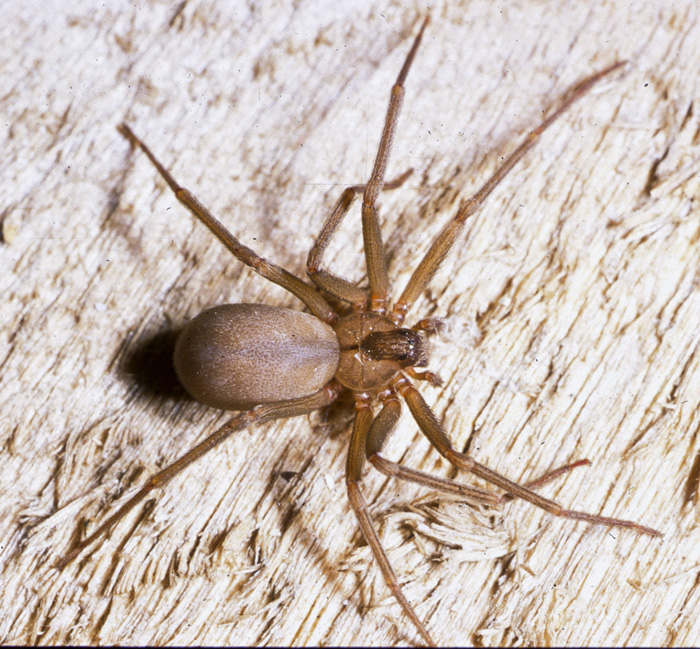Nature’s insect repellent: Spiders help control flies, crickets and mites


This undated photo provided and taken by Rick Vetter, shows a brown recluse spider (AP Photo/Rick Vetter).
By Eric Barrett
OSU Ext. educator
Spiders are the basis for many of the questions that come into the OSU Extension office. From how to get rid of webs to keeping them out of the house to the identification of something that might be poisonous, spiders continue to be of great concern to many people due to the mythical fear that many are poisonous or dangerous.
For the most part, spiders are nothing to fear. They are a great beneficial insect for the yard, garden and even field crops on farms. They generally help control flies, crickets, mites and other insects. Spiders are part of nature’s method of controlling other insect species.
There are two harmful species, including the brown recluse spider and the black widow spider. These are both relatively uncommon in Ohio. While there are other spiders in our region that will bite, most are completely harmless, even though many homeowners would say the invasion of spiders into their home each fall is quite a frightful experience.
Here are some tips directly from Dr. Susan C. Jones as published in OSU Extension Factsheet HYG-2060-04 to keep you from getting freaked out by spiders in and around your home:
To prevent spider bites
Shake out clothing and shoes before getting dressed.
Inspect bedding and towels before use.
Wear gloves when handling firewood, lumber and rocks.
Exercise care when handling cardboard boxes.
To exclude spiders
Install tight-fitting screens on windows and doors; install weather stripping and door sweeps.
Seal or caulk cracks and crevices where spiders can enter the house.
Equip vents in soffits, foundations and roof gables with tight-fitting screens.
Install yellow or sodium vapor light bulbs outdoors since these attract fewer insects.
Sanitation
Remove trash, old boxes, old clothing, wood piles, rock piles, and other unwanted items.
Eliminate clutter in closets, basements, attics, garages, and outbuildings.
Store items off the floor and away from walls.
Eliminate household pests (prey) such as flies, ants and cockroaches.
Remove heavy vegetation and leaf litter around the foundation.
Nonchemical control
Capture the spider and release it outdoors. An effective technique for capturing hunting spiders is to place a cup over the spider and then slide a piece of paper underneath.
Outdoors, use a water hose or broom to regularly destroy any webs that are constructed on or around the house. Spiders often move elsewhere when their webs are regularly destroyed.
Use sticky traps or glueboards to entangle spiders.
More detail on these tactics as well as details on identification can be found at: http://go.osu.edu/commonspiders.
 43
43
